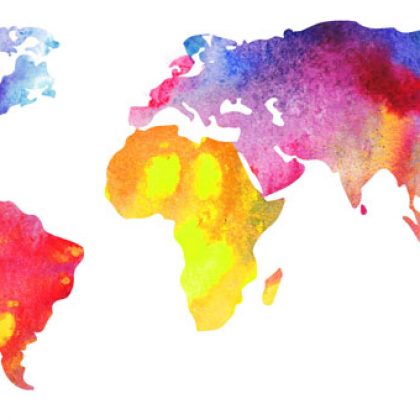Mariama Bâ’s “Memories of Lagos”
The appearance of a new text by the Senegalese writer Mariama Bâ is cause for celebration. And appropriately enough, “Festac . . . Memories of Lagos” is a text that conjures celebration. The short poem evokes Bâ’s transformative experiences at the 1977 Second World Black and African Festival of Arts and Culture (FESTAC) held in Lagos, Nigeria—an important Pan-African gathering that drew over sixteen thousand performers and attendees from across the continent and its diaspora. This poem is an exciting addition to the small corpus of Bâ’s writings. Tragically, Bâ died not long after the success of her first novel, Une si longue lettre (1979; So Long a Letter), just before the publication of her second, Un chant écarlate (1981; Scarlet Song). In addition to these two published texts, Bâ was previously thought to have left behind just a small handful of interviews and speeches. Yet she is one of the most widely taught African novelists of the twentieth century. The appearance of this little-known poem will be a welcome revelation to the many readers and teachers of her works.
I stumbled upon “Memories of Lagos” without setting out to find it. It began with an invitation from the journal Small Axe to respond to Annette Joseph-Gabriel’s Reimagining Liberation: How Black Women Transformed Citizenship in the French Empire, which takes a creative approach to the limits of the archive. To trace a different kind of history and politics, Joseph-Gabriel went in search of not necessarily unpublished sources but rather a variety of overlooked texts by Black women.
Attempting to harmonize with Joseph-Gabriel’s method seemed the appropriate scholarly response. The understudied text I turned to was Mariama Bâ; ou, Les allées d’un destin (Mariama Bâ; or, The Alleys of a Destiny), a biography of Bâ written by her daughter, Mame Coumba Ndiaye, which I had read while writing about Bâ and world literature for PMLA in 2016. Ndiaye’s study of her mother is a striking blend of biography, filial ventriloquism, and citations from unpublished correspondence. Like many of the texts Joseph-Gabriel studies, it is not completely unknown yet it deserves a much wider reading than it has received.
I thought I knew Ndiaye’s Mariama Bâ well—my copy fairly bristles with tiny paper Post-its—but while rereading it I came across a reference to a trip to Lagos that was unfamiliar to me. Bâ was said to have gone to FESTAC to represent L’Ouest Africain (The West African), the magazine published by her husband, Obèye Diop. On a hunch that Bâ might have written something about her trip, I requested from the Bibliothèque nationale de France anything from 1977 written on FESTAC in Lagos by Mariama Bâ. The librarians found nothing under that name but to my surprise and immense gratitude, they told me that a “Mariama Diop” had written something about Lagos that same year. Guessing that Bâ might have used her married name, I requested a reproduction. A photocopy of the text arrived in the mail six weeks later, and when I opened the envelope, I was stunned: not only by the short yet highly evocative poem but also by the photograph of Bâ that ran alongside it.
Reading through the BnF’s holdings of L’Ouest Africain, I found that, in the years leading up to So Long a Letter, Bâ also contributed several other articles, and a few of them are significantly intertextual with entire scenes from her first novel. That is, it now appears that Bâ did not burst into print all of a sudden in 1979. For several years, she had been drafting in public whole sections of what would become her first novel.
To recast a comment Eileen Julien once made about Chinua Achebe, “Memories of Lagos” is an invitation to ask how, where, and why one might read Bâ today. I invite you to attend the virtual roundtable on “Memories of Lagos” at the 2024 MLA Annual Convention, on Friday, 5 January.
The resurfacing of Bâ’s poem serves as a reminder that the archive of twentieth-century print is still vast and very unevenly digitized, especially for African literatures. It seems certain that the years to come will yield further surprises (see, e.g., Edwards). Alongside the inevitable excitement when something unpublished comes to light, one hopes that scholars will continue to reconsider understudied works that still have much to teach.
Links to the PMLA archive:
Bâ, Mariama. “Festac . . . Memories of Lagos.” PMLA, vol. 138, no. 5, Oct. 2023, pp. 1172–76.
Edwards, Brent Hayes. “Clipping in and out of the Trenches.” PMLA, vol. 137, no. 2, Mar. 2022, pp. 201–14.
Julien, Eileen. “How We Read Things Fall Apart Then.” PMLA, vol. 129, no. 2, Mar. 2014, pp. 248–50.
Warner, Tobias. “How Mariama Bâ Became World Literature: Translation and the Legibility of Feminist Critique.” PMLA, vol. 131, no. 5, Oct. 2016, pp. 1239–55.





